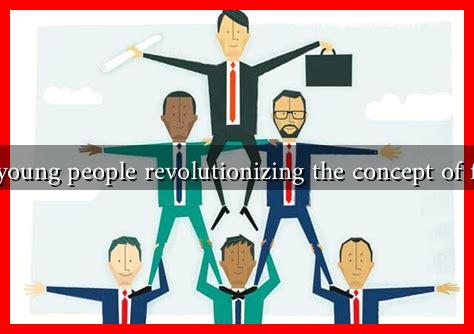-
Table of Contents
How Are Young People Revolutionizing the Concept of Friendship?
In an era defined by rapid technological advancements and shifting social norms, young people are redefining what it means to be a friend. The traditional notions of friendship, often characterized by face-to-face interactions and long-term commitments, are evolving. This article explores how young people are revolutionizing friendship through technology, inclusivity, and new social dynamics.
The Digital Age: A New Frontier for Friendship
Technology has dramatically transformed the way friendships are formed and maintained. Social media platforms, messaging apps, and online communities have created new avenues for connection. According to a study by the Pew Research Center, 90% of teens report using social media, and 75% say it helps them connect with friends.
- Instant Communication: Platforms like WhatsApp, Snapchat, and Instagram allow for real-time communication, enabling friendships to flourish regardless of geographical barriers.
- Shared Experiences: Young people often share their lives through posts, stories, and videos, creating a sense of closeness even when physically apart.
- Online Communities: Niche groups on platforms like Reddit or Discord allow individuals with shared interests to connect, forming friendships based on common passions rather than proximity.
Inclusivity and Diversity in Friendships
Today’s youth are more inclusive and open-minded than previous generations. They are breaking down barriers related to race, gender, and sexual orientation, fostering friendships that reflect a diverse society.
- Cross-Cultural Friendships: Young people are increasingly forming friendships with individuals from different cultural backgrounds, enriching their perspectives and experiences.
- Supportive Networks: LGBTQ+ youth, for example, often find solace in online communities where they can connect with others who share similar experiences, leading to strong, supportive friendships.
- Empathy and Understanding: The emphasis on mental health awareness has encouraged young people to be more empathetic, leading to deeper connections based on understanding and support.
Redefining Commitment and Loyalty
In the past, friendships were often defined by long-term commitments and loyalty. However, young people today are embracing a more fluid understanding of these concepts.
- Quality Over Quantity: Many young people prioritize meaningful interactions over the number of friends they have, leading to smaller but more profound connections.
- Friendship as a Spectrum: The idea of “situationships” has emerged, where individuals maintain a friendship that may not fit traditional definitions but still holds value.
- Temporary Friendships: Young people are more accepting of friendships that may be short-lived, recognizing that not all connections need to last a lifetime to be meaningful.
Case Studies: Real-Life Examples of Friendship Evolution
Several case studies illustrate how young people are revolutionizing friendship:
- Friendship Apps: Apps like Bumble BFF and Friender are designed specifically for making new friends, showcasing the demand for platonic connections in a digital age.
- Social Movements: Young activists often form friendships through shared causes, such as climate change or social justice, creating bonds that are rooted in shared values and goals.
- Virtual Reality (VR): Platforms like VRChat allow users to interact in virtual spaces, creating friendships that transcend physical limitations.
Conclusion: The Future of Friendship
As young people continue to navigate a rapidly changing world, their approach to friendship is evolving in exciting ways. The integration of technology, a commitment to inclusivity, and a redefined understanding of loyalty are all contributing to a new landscape of friendship. This revolution not only reflects the values of today’s youth but also sets the stage for future generations to build connections that are meaningful, diverse, and adaptable.
In summary, young people are not just changing the way they connect with one another; they are redefining the very essence of friendship itself. As we move forward, it will be fascinating to see how these trends continue to shape social interactions and relationships in the years to come.
For more insights on the impact of technology on social relationships, visit Pew Research Center.

